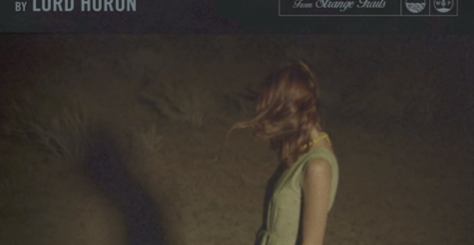Love Like Ghosts by Lord Huron Lyrics Meaning – The Haunting Dance of Ephemeral Love
Lyrics
But I never lost this feeling or this pounding in my chest
I have traveled many miles, I don’t wanna walk no more
Every road and every highway led me right back to your door
Love me like you used to
And I’ll praise you like I should
Love me if you choose to
Though you say that I’m no good
I dream most every night that I never left you
Do you love me anymore?
Does my memory remain
Lord I know I’ve made mistakes but I am different now, I’ve changed
When I open up the door will you know me from the rest?
Will you let me lay beside you?
Will you grant me my request?
Love me like you used to
And I’ll praise you like I should
Love me if you choose to
Though you say that I’m no good
I swear this time around I’m gonna stay
When I dream, I only dream of you
I curse the goddamn day that I went and left you
Love me like you used to
And I’ll praise you like I should
Love me if you choose to
Though you say that I’m no good
Love me like you used to
And I’ll praise you like I should
I don’t want to lose ya
I would change it if I could
I can’t erase the day that I went and left you
In the atmospheric tapestry of sound and soul that defines Lord Huron’s ‘Love Like Ghosts,’ listeners find themselves adrift in a spectral reverie. This track, from the band’s sophomore album, possesses an air of contemplative melancholy that echoes with the shades of love’s past.
Peering through the fog of hauntingly beautiful melodies, the track serves as a conduit to the human experience of love, longing, and the ghostly traces left behind by extinguished flames. The lyrics, rife with emotive resonance, dissect the complexities of reconciliation and remorse in the aftermath of separation.
The Eternal Journey Back to Love’s Doorstep
The wanderer at the heart of ‘Love Like Ghosts’ stands at the crossroads of past and present, encapsulating the human odyssey of chasing what once was. The narrator’s admission of being ‘lost again’ is not only a testament to physical dislocation but a symbol of emotional disarray.
The repetitive nature of the journey, ‘I have traveled many miles, I don’t wanna walk no more,’ serves as a metaphor for the exhausting pursuit of a love that forever slips away, only to lead back to a singular, unchanging point of origin—a lover’s doorstep.
Praise as Redemption: The Humble Plea
The refrain, ‘Love me like you used to / And I’ll praise you like I should,’ isn’t simply a beguiling lyric, but a heartfelt entreaty for acceptance and forgiveness. Here, praise isn’t just adoration but a form of penance offered in return for a second chance.
The ambivalence of ‘Love me if you choose to / Though you say that I’m no good’ embodies the internal struggle of self-worth that often accompanies the yearning for reconciliation. The lover is ready to transform devotion into atonement, acknowledging past failings while seeking grace.
Dreamscapes and Reality: The Twilight Between
‘I dream most every night that I never left you’ stretches beyond the restless slumber of the songwriter. It encapsulates the twilight zone where fantasy and reality no longer maintain clear boundaries, and where dreams become the only refuge from the gravity of loss.
This surrealist imagery is employed not to escape truth but to highlight the psychological terrain of love’s labyrinth where past and potential futures collide, leaving the dreamer to navigate the remnants of what once felt eternal.
The Hidden Meaning: A Covenant with the Past
At its core, ‘Love Like Ghosts’ dabbles in the spiritual and spectral. Ghosts, as ethereal messengers of what’s left undone, become a powerful allegory for the emotional remnants of a love that refuses to die.
The narrator’s questioning of whether he will be remembered or granted his request to ‘lay beside you’ again speaks to the inherent human need for connection and continuity, hinting at a soul-deep contract that remains unfulfilled.
Memorable Lines: The Torment of Regret
‘I curse the goddamn day that I went and left you,’ uttered with a raw conviction, captures the agonizing moment of realization—the pinpoint in time that marks the divergence of paths and the birth of regret.
Such an explicit curse denotes not merely the narrator’s frustration with the past but a tortured acknowledgment that, despite the hope for restoration, some decisions carve out indelible scars in the landscape of our histories.








